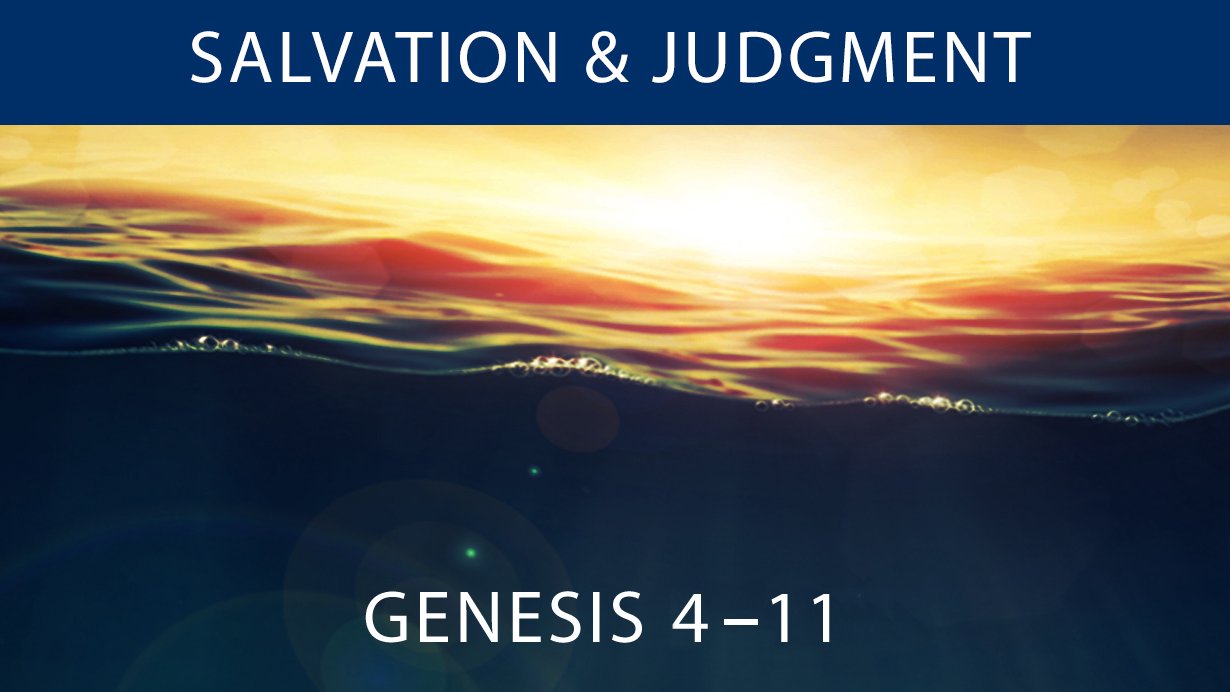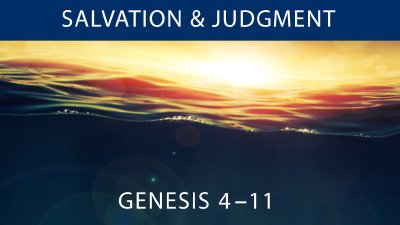On Sunday, we return to our study of Genesis. And for those who have been waiting to hear about the Nephilim in Genesis 6, you’ll have to wait one more week.
For this Sunday, we have a genealogy to journey. And I say journey, because the names and events related to this list of figures is anything but boring. Indeed, from Seth to Enoch to Noah, we will see an important history that connects Adam to his faithful sons, on the way to a story of giants being destroyed by a global flood. That’s next week (see more below).
As we saw three Sunday’s ago, the sons of Cain pursued all manner of wickedness in Genesis 4. But now, as the sons of Seth begin to call upon the name of the Lord, there is great hope that those who die in faith will be received by the Lord. Or at least, that is the situation for one man by the name of Enoch.
Among the fathers named in Genesis 5, Enoch stands out as a turning point in the story. And more his ascension to heaven, as I will argue, promises mankind that death is not the only option. Instead, there is way of life that comes by walking with God. Yet, walking with God requires more than a daily quiet time, it requires spiritual warfare.
For, as we will see, the generations before Noah are wicked and rebellious, much like our own generation. And thus, from the fighting faith of these fathers, we will see what it looks like to trust God amidst a generation who doesn’t.
To prepare for Sunday, read Genesis 5. But don’t stop there. You will also be helped by reading Jude and Matthew 1. And for the more studious, you would be helped by reading 1 Enoch 6–16. As I mentioned three weeks ago, this passage is not found in the biblical canon, and I don’t treat it as inspired by God and authoritative for doctrine. Nevertheless, this book clearly contributed to the worldview of the Jews in Jesus' day and was quoted by Jude (1 Enoch 1:9 = Jude 14–15). So knowing its contents will help you better understand Genesis 5:1–6:8, as well as the message of Christ’s conquest over the powers and principalities.
Furthermore, as we prepare to tackle giants next week, you might be helped by picking up a copy of Giants: The Sons of the Gods from the bookshelf. Or you can listen to Haunted Cosmos on Giants (Part 1, Part 2). Next week is going to be gigantic . . . and not just because of the Nephilim.
This week and next we will see more clearly how great our risen Christ is! And so, I look forward to seeing you on Sunday as we come and worship our king, the one who reigns over all things in creation—things visible and things invisible too!
For His Glory and your joy in Christ,
Pastor David
-----------------------------------------------------------------------------------------------------------
Discussion & Response Questions (Genesis 5)
When you read a genealogy in the Bible, what are you looking for?
What are they used for?
And how can you over-read them?
Or under-read them?
What comes before the genealogy in Genesis 5 and what comes after?
How does the genealogy help us understand both sections? And vice versa?
There are four key figures in the genealogy (Adam, Enoch, Lamech, Noah). What does the passage tell us about each? How does these vignettes add to our understanding of the passage?
There are also minor figures (Seth, Jared, Methuselah). What do we know about them? What role do the names of these men play?
What is the recurring theme in Genesis 5?
What does death teach about God and his world?
And how does the theme of death highlight Enoch’s ascension?
What is the relationship between the sons of Cain (Gen 4:17–24) and the sons of Seth (Gen. 5)?
Look especially at the seventh generation. Cf. Jude 14–15.
What connections does Genesis 5 have with the New Testament?
Cf. Matthew 1:1–17; Hebrews 11:1–7; Jude 14–15.
What do these connections tell us? What does it mean that Christ is a new Enoch?
What other questions do you have?
Are you ready to talk about giants (Nephilim) next week?






